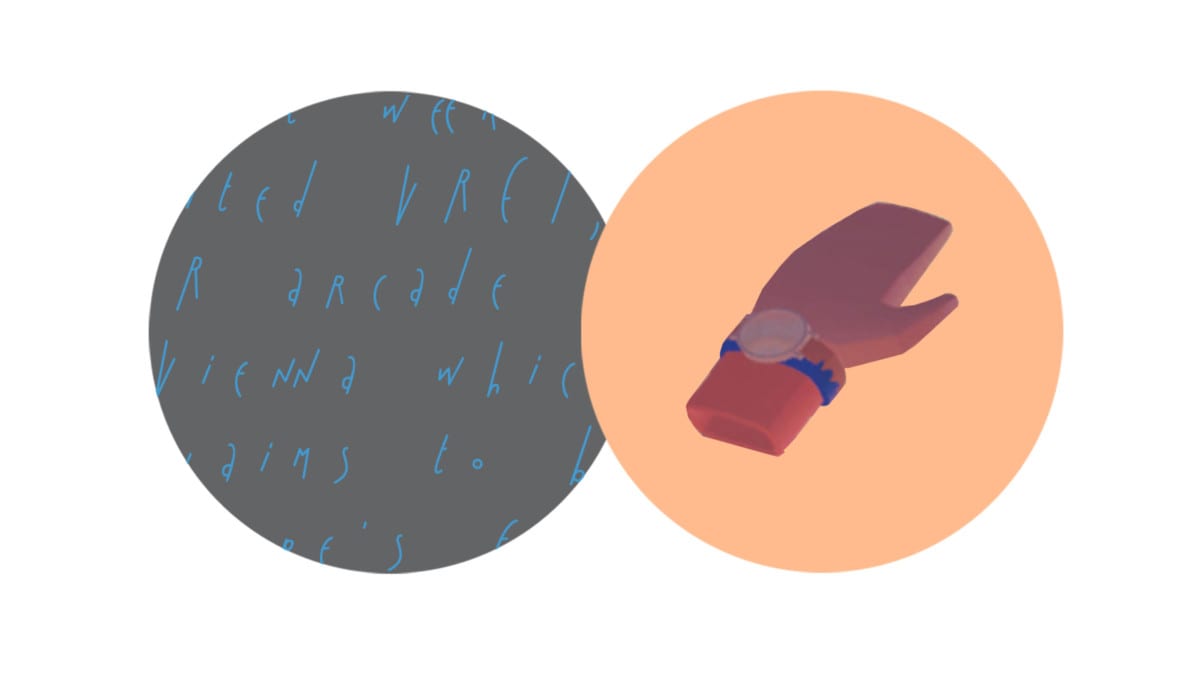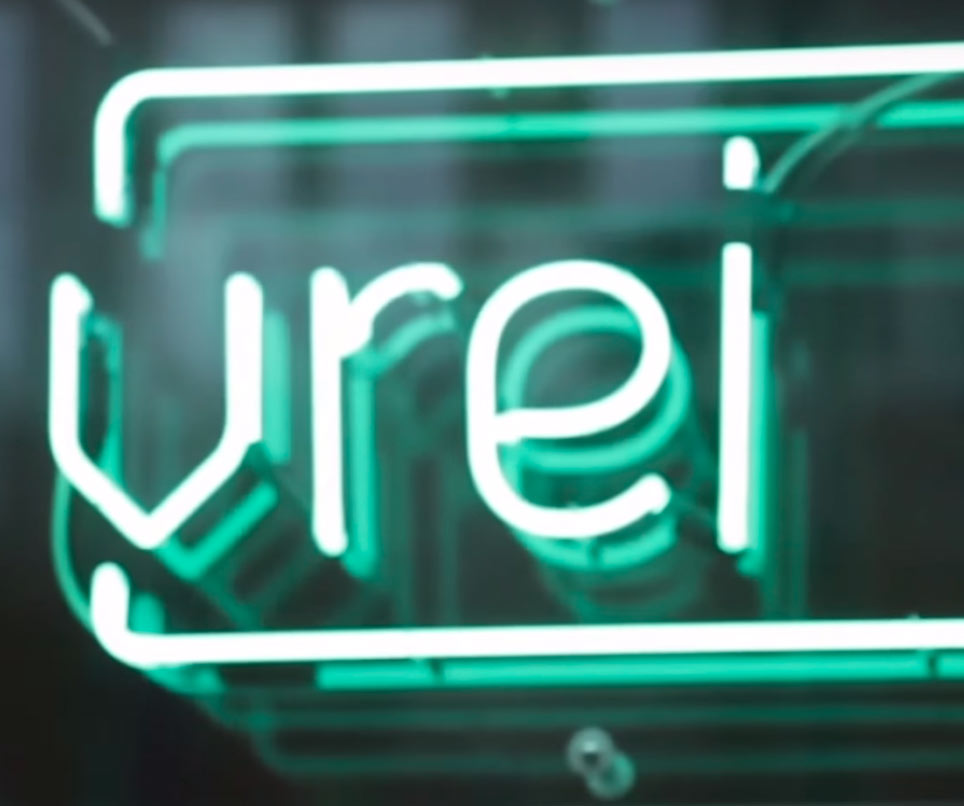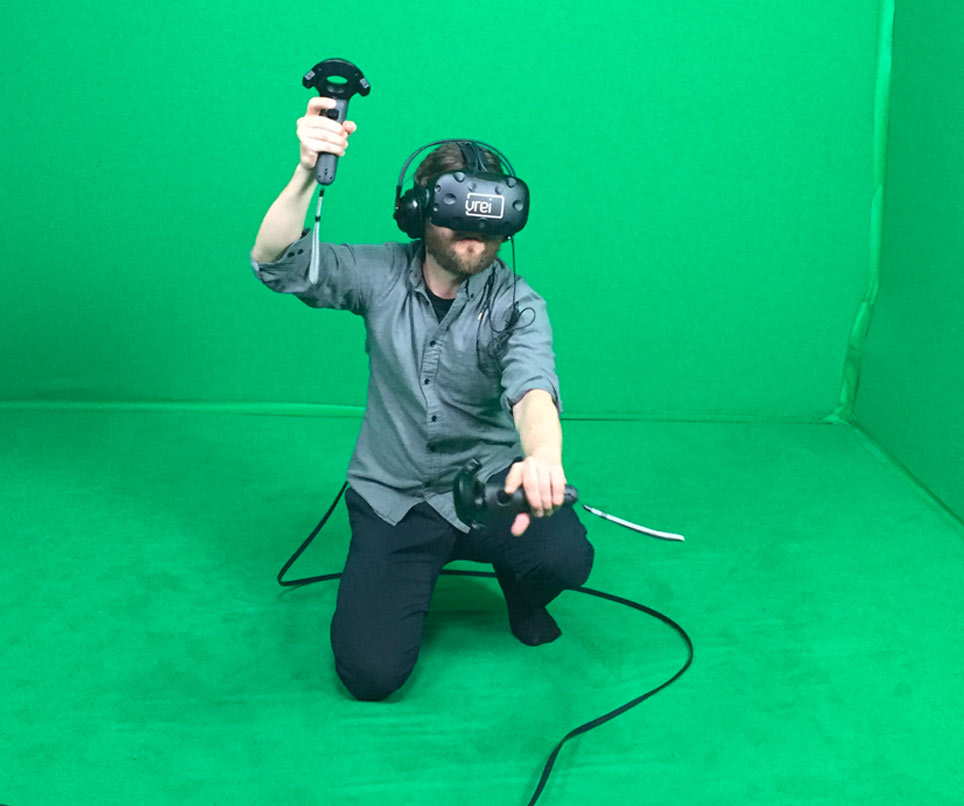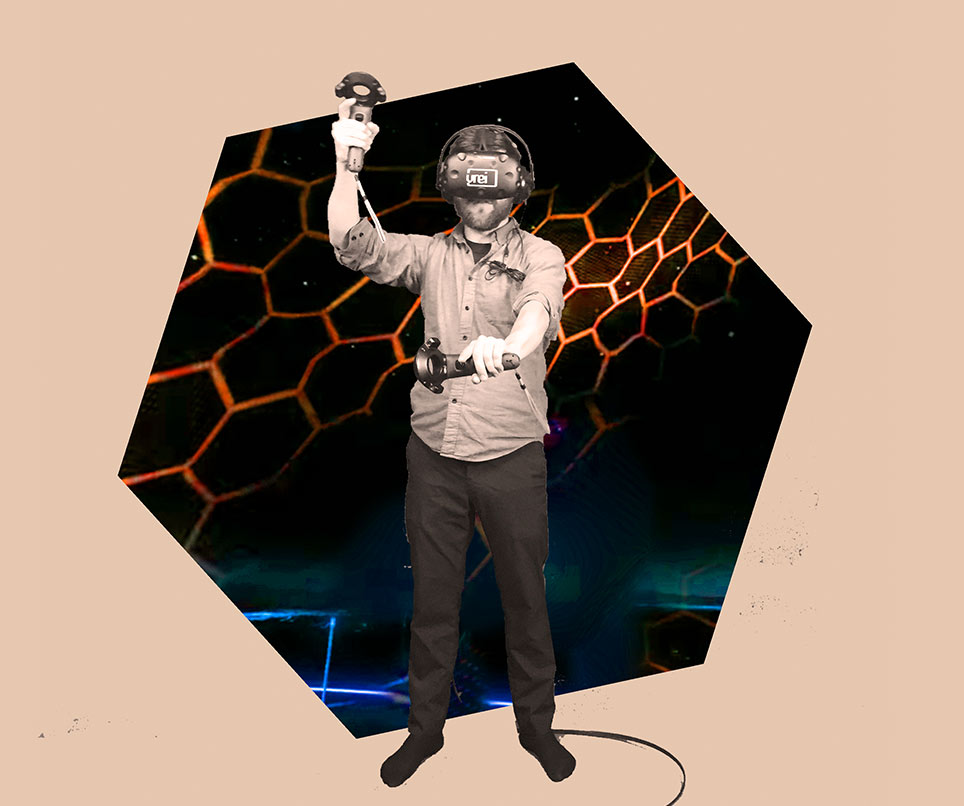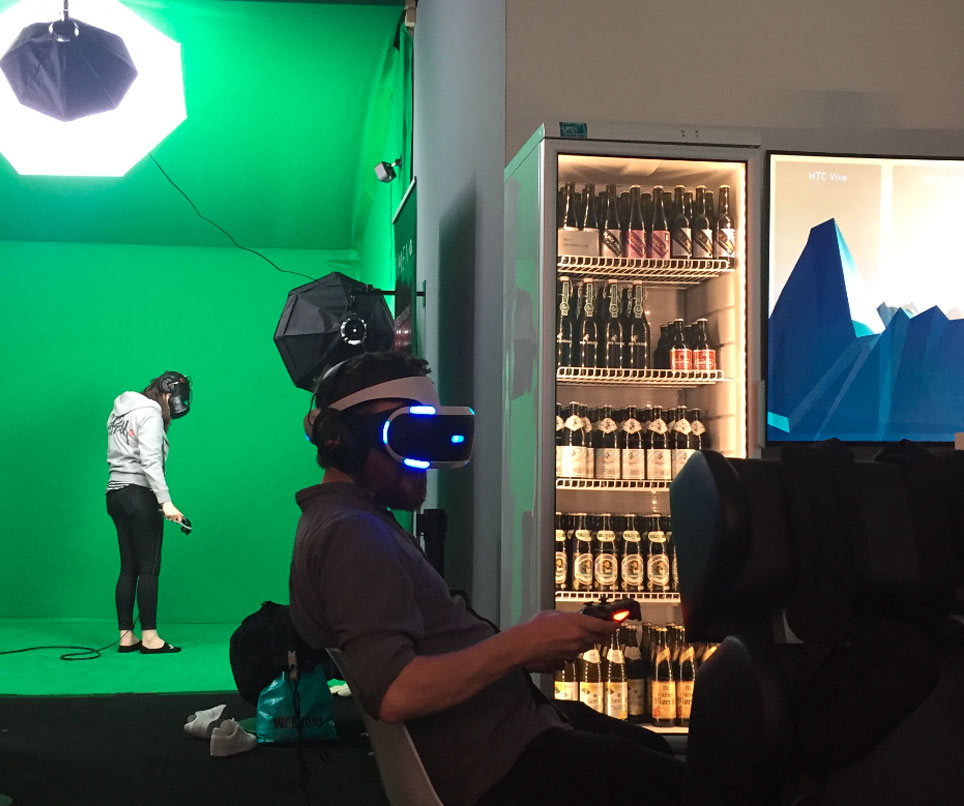Last week I visited VREI, a VR café in Vienna that claims to be Europe’s first VR arcade. Its very welcoming staff showed me to an iPad listing all of the game options and pricing, which is measured in ‘coins’—a throwback to 80s arcades, and perhaps an effort to mask how expensive it is to play. HTC Vive experiences were three euros per minute, while the VR driving simulator was six euros per minute (so an hour on the driving simulator would set you back 360 €!). However, they also offer a number of free experiences on the PlayStation VR and Samsung Gear VR, which is a great way to get people in the door and spread the word about VR. Since I’m more interested in creative experiences than games, I was happy to see VREI offered non-game options like Google Earth and The Lab, but surely their money is made off of the first-person shooter and driving games.
A big reason consumers—particularly city-dwellers with compact apartments—visit VR arcades is that even if they have the hardware for VR, they may not have space in their living room for full room-scale action, like swinging a virtual tennis racquet or jumping to avoid alien lasers, let alone a multi-player game.
The game we chose at VREI, Rec Room VR by Against Gravity, seems ideal for VR arcades. It offers a variety of sporty mini-games, including paintball, disc-golf, and soccer, as well as less sporty options like 3D charades. But at first my girlfriend and I didn’t realize that it wasn’t just us playing: avatars from the around the world were running rampant through our ‘locker room’—so many that we had a hard time finding each other in the chaos and had to shout to talk across the real-life arcade.
Here I began to see the justification for VREI’s pricing. For the Rec Room experience, we needed a dedicated attendant on hand for most of our playtime to set us up, assign our avatars, explain how to play and how to invite each other to the room, and troubleshoot when I got booted out of one of the games. With the growth of VR arcades, HTC and others are expanding their licensing options so that arcades can offer officially licensed versions of the games (rather than forcing arcades to cut their own deals with each studio, or not pay studios at all). I hope that this in turn leads to studios offering separate demo-ready versions of their games and experiences to reduce the onboarding time: to choose some easy default settings, assign an avatar automatically, show a quick tutorial, then launch you into the VR world.
Compared to other VR arcades, VREI felt more welcoming and more intentionally designed. The wallpaper had a cool low-poly pattern; there were lots of chairs and tables, a green screen room for mixed reality photos, a separate lounge in the basement (which looked ready for a DJ party), free wifi, and a bar serving coffee and drinks. They were successful in making it feel like a relaxed hangout place centered around VR. One could imagine an entire spectrum of users here, from a guest trying VR for the first time with a free experience on the Gear VR to the staff of a local VR studio meeting for coffee and demo-ing their newest build.

